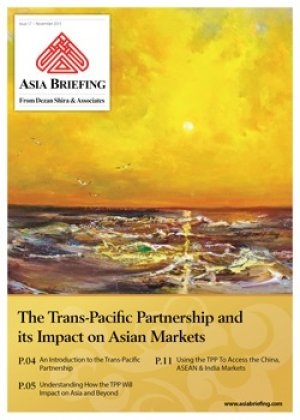ASEAN Regulatory Brief: Money Laundering Regulations in Thailand, Philippine Monetary Allowances, and Private Jets in Indonesia

Thailand: New KYC Guidelines Issued
Thailand’s central Bank of Thailand (BOT) has introduced new regulations to ease the Know Your Customer (KYC) process using the electronic process (e-KYC) to open accounts on deposit acceptance of funds accepted from the public. Financial institutions globally are increasingly being required to comply with KYC guidelines under the anti-money laundering law (AML). As per the BOT Notification No. SorNOrSor. 7/2559 the following guidelines have been issued.
- E-KYC procedures must have the same standards as KYC procedures and available only for individual customers using electronic means such as computers, mobile phones, other electronic devices etc. Financial institutions however, must get prior approval from the BOT.
- Electronic signatures are acceptable.
- Verification of customers must be done using ID cards or a smart card reader
- Financial institutions must retain all information including KYC documents or their copies as per the AML law.
The regulation went into effect in August.
 RELATED: International Tax Planning Services from Dezan Shira & Associates
RELATED: International Tax Planning Services from Dezan Shira & Associates
Philippines: Travelers allowed to bring up to US$ 1,000 into the Country
Travelers going in and out of the country will be allowed to bring as much as US$1,043 (PHP 50,000) worth of legal tenders from September as per the central Bangko Sentral ng Pilipinas (BSP). The directive was issued by BSP officials and amended the rules on cross-border transfer of local currency in the form of Circular 922. Amounts more than this will require prior authorization from the BSP. The limit also applies to electronic transfers.
The move goes with the BSP’s liberalization measures to bring its citizens back to the banking system. Apart from this, the BSP also increased the limit of allowing Philippine residents to purchase up to US$500,000 in foreign exchange compared to US$120,000 previously. The BSP has also been adopting measures to ease foreign exchange and document requirements on sending money abroad in a bid to attract depositors back to the banks.
 RELATED: Industry Spotlight – Identifying Opportunities in ASEAN Real Estate
RELATED: Industry Spotlight – Identifying Opportunities in ASEAN Real Estate
Indonesia: Private Jets allowed in Indonesian Airspace
Indonesia’s Ministry of Transport has signed a new regulation that will allow non-commercial foreign-owned private jets to fly from more than two airports and thus domestically within the country in a bid to promote tourism and investment. The regulation is being processed by the Ministry of Law and Human Rights and is expected to be in effect soon. Indonesian private jet owners – to get around the law – typically register their planes in foreign countries where getting financing and licenses are easy, as well as getting experienced pilots.
Transport officials have stated that the under the new regulation, private jets will need security clearance, flight approval, diplomatic clearance and a special permit from the ministry to fly inside Indonesian airspace. Officials also stated that they will launch a special website for flight permits making the process easier. Previously, private jets could only go to international destinations and were allowed to operate from just one or two Indonesian airports. Studies have shown that if the government relaxes flight restrictions, the Indonesian business jet market could be the largest in Southeast Asia by 2019, overtaking Singapore.
|
Asia Briefing Ltd. is a subsidiary of Dezan Shira & Associates. Dezan Shira is a specialist foreign direct investment practice, providing corporate establishment, business advisory, tax advisory and compliance, accounting, payroll, due diligence and financial review services to multinationals investing in China, Hong Kong, India, Vietnam, Singapore and the rest of ASEAN. For further information, please email asean@dezshira.com or visit www.dezshira.com. Stay up to date with the latest business and investment trends in Asia by subscribing to our complimentary update service featuring news, commentary and regulatory insight. |
Annual Audit and Compliance in ASEAN
For the first issue of our ASEAN Briefing Magazine, we look at the different audit and compliance regulations of five of the main economies in ASEAN. We firstly focus on the accounting standards, filing processes, and requirements for Indonesia, Malaysia, Thailand and the Philippines. We then provide similar information on Singapore, and offer a closer examination of the city-state’s generous audit exemptions for small-and-medium sized enterprises.
 The Trans-Pacific Partnership and its Impact on Asian Markets
The Trans-Pacific Partnership and its Impact on Asian Markets
The United States backed Trans-Pacific Partnership Agreement (TPP) includes six Asian economies – Australia, Brunei, Japan, Malaysia, Singapore and Vietnam, while Indonesia has expressed a keen willingness to join. However, the agreement’s potential impact will affect many others, not least of all China. In this issue of Asia Briefing magazine, we examine where the TPP agreement stands right now, look at the potential impact of the participating nations, as well as examine how it will affect Asian economies that have not been included.
 An Introduction to Tax Treaties Throughout Asia
An Introduction to Tax Treaties Throughout Asia
In this issue of Asia Briefing Magazine, we take a look at the various types of trade and tax treaties that exist between Asian nations. These include bilateral investment treaties, double tax treaties and free trade agreements – all of which directly affect businesses operating in Asia.
- Previous Article Q&A: Using Singapore as a Regional Hub for Managing ASEAN Operations
- Next Article IP Protection in Malaysia’s Food & Beverage Industry









